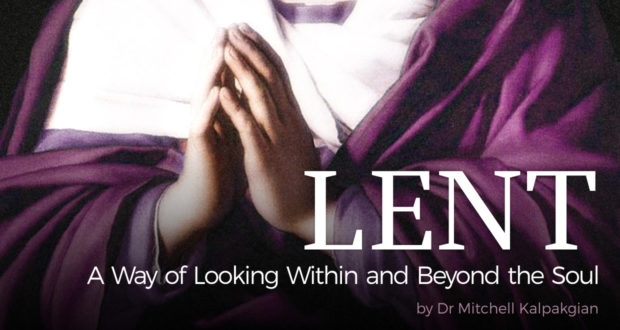The routine of life forces man to think of today’s basic needs, tomorrow’s debts, next week’s social events, and next month’s travel plans.
It becomes easy to become pre- occupied with meals, work, money, debts, and social events. In the regimen of daily toil human nature thinks of the immediate, the necessary, and the customary.
No Need to Grow
Because of the urgent needs and pressing demands of the moment, man looks outward, around, and ahead, but he sometimes forgets to look within the soul or beyond this mortal life. Human beings easily develop complacency and self-satisfaction and imagine that they do not need to grow spiritually—a symptom of the deadly sin of sloth.
Complacency, however, resembles a stagnant body of water and indicates a kind of lifelessness that opposes the movement of rushing water that symbolizes the life force. All of life—physical, mental, and spiritual—must be kept in motion for health, growth, and maturity.
Just as a person needs exercise to preserve health and vitality, he needs mental stimulation for a life of the mind to gain in wisdom and spiritual nourishment for the soul to grow in holiness and Christian perfection. Christ said, “Be ye perfect even as my father in Heaven is perfect”—a warning against spiritual stagnation and dullness.
Lent is About Discovery
The Lenten season provides this time to turn within to examine the conscience and to look beyond to eternal life and the resurrection of the body. It attempts to combat the deadly sin of sloth, the lukewarmness that does not passionately love good, angrily hate evil, or seek perfection—the vice of laziness and carelessness about the moral life shown by those who are “vomited” by the Lord because they are “neither hot nor cold.”
To look within during Lent is to discover that one can always love more purely, more generously, more patiently, and more forgivingly. To examine the conscience is to admit that one has not completely conquered the vice of pride or self-love or learned the humility of Christ who washed the feet of the disciples and taught His followers to put themselves last instead of first.
To seek Christian perfection is to conquer the slothful habits that resist prayer, spiritual reading, attendance at Mass and the works of charity, mercy, and kindness that reveal the love of neighbor. To practice Lenten discipline is to master and tame the body and moderate eating, drinking, and pampering the flesh.
Just as one can always be a more loving parent, husband, and wife—growing in perfection—one can always grow in the love of God and the imitation of Christ and the saints.
Contemplate Eternal Verities
To look beyond this mortal life during Lent is to meditate upon sin and death and to contemplate heaven and hell as ultimate realities that await each person. Has a person loved money, possessions, and pleasure too much and gained the world but lost his soul?
Has a person truly confessed his sins with sorrow or conveniently ignored and excused them? Has a person thanked God for the gifts of life, health, marriage, children, and happiness, or has he forgotten to show gratitude like the nine healed lepers who never bothered to show their gratefulness?
Has one reflected on the meaning of the Cross and contemplated the streams of blood and water that poured from Christ’s wounds, and has he carried his own crosses with patience and perseverance without losing courage or faith?
Has a person forgotten the intimate love of God who thirsts for souls and loves each person “as if he were the only one” as Augustine says—the God who unites Himself to the soul in a bond that resembles the marital embrace of husband and wife?
The Lenten season turns the mind from the things below to the things above, from the things of today to the eternal verities.
It turns the gaze from the activities of social and economic life to the interior world of the heart and soul where God dwells and where another universe exists—the realm of divine life—God speaking to the conscience, touching the heart, and moving the soul to be perfect, to follow Him, to carry the cross, to have faith, to be with Him in Paradise, and always to remember that love conquers death and the best is yet to be.

 Seton Magazine Catholic Homeschool Articles, Advice & Resources
Seton Magazine Catholic Homeschool Articles, Advice & Resources
